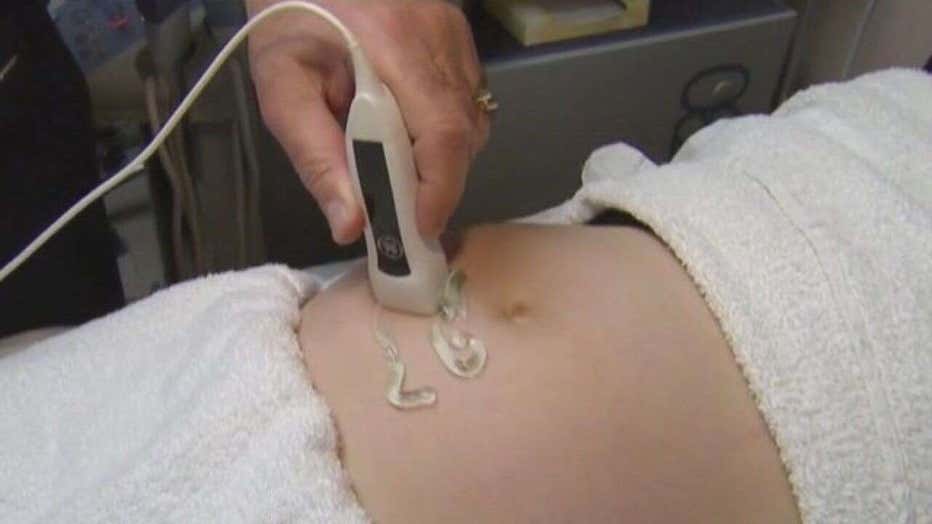Texas abortion law back in court for DOJ lawsuit hearing
AUSTIN, Texas - A federal judge is hearing arguments Friday over whether Texas can leave in place the most restrictive abortion law in the U.S., which since September has banned most abortions and sent women racing to get care beyond the borders of the nation's second-most populous state.
A lawsuit filed by the Biden administration seeks to land the first legal blow against the Texas law known as Senate Bill 8, which thus far has withstood an early wave of challenges -- including the U.S. Supreme Court allowing it to remain in force.
Texas abortion law hearing: Here’s what you need to know about the DOJ’s argument against SB8
"Abortion care has almost completely stopped in our state," Dr. Ghazaleh Moayedi, a Texas abortion provider, told the U.S. House Oversight and Reform Committee during a hearing over abortion access Thursday.
The law, signed by Republican Gov. Greg Abbott in May, prohibits abortions in Texas once cardiac activity is detected, usually around six weeks, which is before some women know they are pregnant.
In the short time since the law took effect Sept. 1, abortion providers say "exactly what we feared" has become reality, describing Texas clinics that are now in danger of closing while neighboring states struggle to keep up with a surge of patients now driving hundreds of miles from Texas. Other women, they say, are being forced to carry pregnancies to term.

A fetal ultrasound
U.S. District Judge Robert Pitman of Austin will consider whether to temporarily halt the Texas law, which stands as the nation's biggest curb to the constitutional right to an abortion in a half-century.
The Justice Department has pushed for the court to act swiftly, but it is unclear how soon Pitman will decide.
It is also unclear how quickly any of Texas' nearly two dozen abortion clinics would move to resume normal operations if the law is set aside. Texas officials would likely seek a swift reversal from the 5th U.S. Circuit Court of Appeals, which previously allowed the restrictions to take effect.
The Texas law is just one that is setting up the biggest test of abortion rights in the U.S. in decades and it is part of a broader push by Republicans nationwide to impose new restrictions on abortion.
On Monday, the U.S. Supreme Court begins a new term, which in December will include arguments in Mississippi's bid to have the landmark Roe v. Wade decision guaranteeing a woman's right to an abortion overturned.
Senators argue over Supreme Court’s decision on Texas abortion law
Last month, the court did not rule on the constitutionality of Texas' law in allowing it to remain in place. But abortion providers took that 5-4 vote as an ominous sign about where the court, its conservative majority fortified with three appointees of former President Donald Trump, might be heading on abortion.
Other states, mostly in the South, have passed similar laws that ban abortion within the early weeks of pregnancy, all of which judges have blocked. But a wrinkle to Texas' version has so far outmaneuvered courts: Enforcement is left to private citizens, not prosecutors.
Under the Texas law, anyone can file a lawsuit not only against abortion providers, but persons suspected of even helping a woman getting an abortion after cardiac activity is detected. The person bringing the lawsuit is entitled to at least $10,000 in damages if they prevail, which critics say amounts to a bounty.
The Texas Attorney General's Office argued in court filings this week that even if the law was put on hold temporarily, providers could still face the threat of litigation over violations that might occur in the time between a permanent ruling.
"The federal government's complaint is that the Heartbeat Act is difficult to effectively enjoin," the state wrote in objection to the lawsuit by the Biden administration. "But there is no requirement that a state write its laws to make them easily enjoined."
David Coale is a constitutional law attorney not involved in this case.
"The only defendant is just the state to get an injunction against the law going any further," he said.
During the hearing, the Justice Department argued the law would impact federal agencies, such as immigration and prisons, when they offer medical services to women in their custody.
"So the United States here is taking some positions that are would seem a little unusual in basically any other case applied to this statutes," Coale said. "They say, ‘Look, it's an unusual statute. But think outside the box a little bit.’"
But the state of Texas presented video evidence. They had interviews with federal agents who said few if any women to their knowledge in federal government custody are seeking to get an abortion.
Kimberlyn Schwartz is with Texas Right to Life.
"It would be really shocking if the judge actually entertained that petition," she said.
Schwartz listened in on the hearing and believes the state presented a strong rebuttal.
"The Texas Heartbeat Act wouldn't impact their daily services or activities in any way. So that argument really fell flat and backfired on the department of justice," she said.
One lawsuit has already been filed. Coale says regardless of the outcome this case is far from over.
"If I was going to places you odds here, it's going to go to the U.S. Court of Appeals for the Fifth Circuit, one of the most conservative courts of appeals in the country," he said.
At least one Texas abortion provider has admitted to violating the law and been sued -- but not by abortion opponents. Former attorneys in Illinois and Arkansas say they instead sued a San Antonio doctor in hopes of getting a judge who would invalidate the law.
Abbott dodges question on changing Texas abortion law for rape victims

